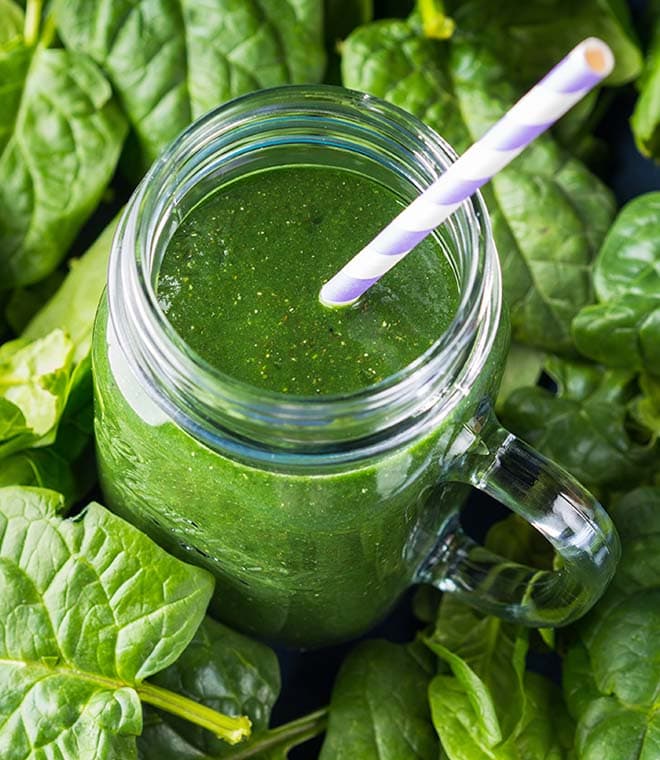Wellness
Guide to multivitamins with iron
By Jennifer Scheinman, MS, RDN Sep 26, 2023 • 7 min
Shopping for a multivitamin can be overwhelming. The aisle is lined with countless product options, all associated with different benefits. With so many choices, it can be hard to decide what to choose. Learn more about choosing a multivitamin with iron, so you can feel confident in selecting one that's right for you.
What is a multivitamin with iron?
A multivitamin with iron is a dietary supplement that contains vitamins and minerals, including the mineral iron. There is no standard definition of which nutrients a multivitamin must contain, so manufacturers can choose what to include and how much. This can make it challenging to figure out the most appropriate option for your particular needs.
Multivitamins labeled as "one a day" or "daily" tend to have most of the nutrients you need to meet your daily requirements. Our nutrient requirements are based on age and sex, so companies create formulas tailored to meet those specific needs. For example, a woman's formula might have more iron than a man's formula. This is because women who are menstruating, pregnant, or breastfeeding may need more iron than adult men and kids do. On the other hand, a senior multivitamin may be appropriate for people over age 50, as both men and women have similarly recommended iron intakes.
Do I need a multivitamin with iron?
Most people should be able to get all the nutrients they need from food. Yet according to the 2020-2025 Dietary Guidelines for Americans, many Americans don't get enough of certain micronutrients through their diet. If your diet is not adequate, a multivitamin with iron may help fill in the gaps.
While it's possible that micronutrient deficiencies can contribute to illness, research has yet to demonstrate whether taking a multivitamin with iron helps to prevent chronic disease. For this reason, it's a good idea to eat a well-balanced diet and ask your healthcare provider if you should take a multivitamin.
Who should take a multivitamin with iron?
Studies have shown that key nutrients benefit specific populations. For example, the American College of Obstetricians and Gynecologists recommends that pregnant women or those trying to become pregnant take a prenatal vitamin that contains iron and folic acid. Some health conditions may contribute to people having deficiencies of certain vitamins and minerals. When you don’t have enough iron, which is also known as iron deficiency anemia, you may experience:
- Weakness
- Feeling very tired
- Headache, lightheadedness or dizziness
- Pale skin
- Sore, inflamed tongue
- Nails that break easily
- Cold hands and feet
- Shortness of breath
If you have these symptoms or believe you may not be getting what you need from your diet, talk to your healthcare provider about taking a multivitamin.
What forms of multivitamins with iron are there?
Multivitamins with iron are available in many forms. While pills and tablets are commonly used, liquids, gels and gummy vitamins with iron may be a better choice for people who have difficulty swallowing pills. Chewables, gummies and drops are available for infants and children.
Are there any safety concerns with taking a multivitamin with iron?
Healthy people face little to no risk when taking a multivitamin. However, when it comes to vitamins, more is not necessarily better. Certain nutrients can do more harm than good when taken in excess. This can be a concern if you are taking multiple supplements or multivitamins containing more than the recommended daily allowance. A diet high in fortified foods, such as bread, cereal, dairy and nondairy milk alternatives, can also put you at risk of excessive consumption of certain nutrients.
Nutrients can be harmful for your health in high doses. Some examples include:
- Iron: Adult men and postmenopausal women may choose to avoid vitamins that contain iron, unless instructed by a healthcare provider to treat iron deficiency anemia. Since iron supplements can put children under 6 at risk of poisoning, it's important to keep multivitamins with iron out of the reach of children.
- Vitamin K: This vitamin may interfere with medications used to thin the blood. People who take these medicines should talk to their healthcare providers before taking any multivitamin.
- Vitamin A: Taking in excess vitamin A during pregnancy can increase the risk of birth defects in babies. High doses of vitamin A may also be a health concern for people who smoke.
Look for multivitamins with iron that do not exceed 100% of the daily value (DV) of recommended nutrients.
How can I choose a multivitamin?
Your healthcare provider can help you determine if you need a multivitamin with iron and which one is best for you. The following tips may help:
- Select a multivitamin with iron that is targeted to your age group, gender and special needs (such as a prenatal vitamin).
- Look for vitamins that don't exceed the recommended DV. You can find this information on the supplements facts label. Also note that some essential nutrients found in a multivitamin, such as calcium and magnesium, will not meet the recommended daily allowance. Be careful not to rely solely on your multivitamin.
- Look for brands that practice good manufacturing practices. A United States Pharmacopeial Convention (USP) verified mark on the package indicates that the supplement contains the ingredients listed on the label, in the declared amounts, and doesn't contain harmful levels of substances.
A multivitamin with iron may help provide adequate nutrition for people at risk for deficiency. If you're concerned that you're not getting the nutrients you need through your diet, your healthcare provider can help you select a vitamin that best suits your needs. It's important to remember that taking a vitamin is not a replacement for following a healthy diet.
Clinically reviewed and updated by Julie McDaniel, MSN, RN, CRNI September 2023.
Sources:
- https://ods.od.nih.gov/factsheets/MVMS-HealthProfessional/
- https://www.dietaryguidelines.gov/
- https://www.uptodate.com/contents/vitamin-supplementation-in-disease-prevention
- https://www.acog.org/womens-health/faqs/nutrition-during-pregnancy
- https://www.eatright.org/food/vitamins-and-supplements/dietary-supplements/vitamins-minerals-and-supplements-do-you-need-to-take-them
- https://utswmed.org/medblog/multivitamins-supplements/
- https://www.usp.org/verification-services/verified-mark
- https://familydoctor.org/vitamins-and-minerals-how-to-get-what-you-need/
- https://www.womenshealth.gov/healthy-eating/how-eat-health/vitamins-and-minerals-women
- https://www.mayoclinic.org/diseases-conditions/iron-deficiency-anemia/symptoms-causes/syc-20355034
- https://ods.od.nih.gov/factsheets/Iron-HealthProfessional/
- https://ods.od.nih.gov/factsheets/VitaminK-HealthProfessional/
- https://ods.od.nih.gov/factsheets/VitaminA-HealthProfessional/




